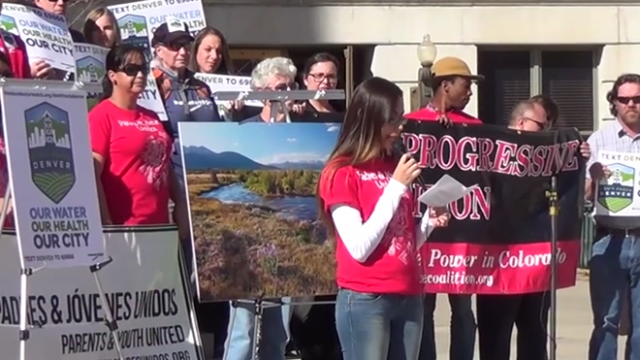So Fracking Racist

Apparently, according to a “health justice organizer” who spoke at a rally against hydraulic fracturing in Colorado, domestic oil development is racist because it targets “communities of color.”
This may come as a surprise to North Dakota, one of the nation’s leaders in shale oil development, where the population is about 90 percent white according to the U.S. Census Bureau. In fact, North Dakota is so racially homogenous that a reporter for a national publication once wrote an article about how she’d never visit the state because ew white people.
Maybe oil companies drill where the oil is, and don’t really care about the skin color of the people who live there?
In McKenzie County, Williams County, and Mountrail County (where the epicenter of the Bakken oil play) the percentage of white residents is 77 percent, 92 percent, and 66 precent, respectively.
Of course, it’s absolutely true that a big portion of North Dakota’s oil fields are on reservation land. The Fort Berthold Indian Reservation, specifically, home to the Mandan, Hidatsa and Arikara Nation, produces about a third of the state’s total oil output.
While there has been a lot of noise about the impact of oil development on the reservation, and some very real problems with corrupt tribal politics (unfortunately many tribal communities struggle with crime and corruption and it’s not unique to oil-rich reservations), it’s hard to argue that energy development hasn’t been a net boon to that community.
The unemployment rate on the Fort Berthold Reservation is under 2 percent, while on other reservations in the state it’s as high as 80 percent. In addition to low unemployment rates, at the end of 2013 the tribe there was taking in about $40 million per month in oil tax revenue.
To put that huge amount of money into perspective, the MHA Nation has about 10,249 enrolled members.
The tribe has set up what they call The People’s Fund. According to projections published by the trbie, that fund is expected to be paying out over $11,000 to each tribal member on their 21st birthday by 2030. and over $15,000 by 2034.
That sort of economic windfall doesn’t sound very racist to me.




